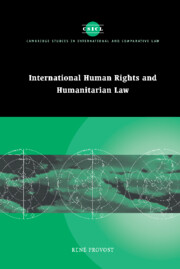Book contents
- Frontmatter
- Contents
- Acknowledgments
- Table of cases
- Table of treaties
- Table of other international instruments
- Introduction
- PART I Normative frameworks
- PART II Reciprocity
- Introduction
- 3 Formation
- 4 Application
- 5 Sanction
- Conclusion to Part II
- PART III Application: law and facts
- General conclusion
- Bibliography
- Index
- CAMBRIDGE STUDIES IN INTERNATIONAL AND COMPARATIVE LAW
3 - Formation
Published online by Cambridge University Press: 07 September 2009
- Frontmatter
- Contents
- Acknowledgments
- Table of cases
- Table of treaties
- Table of other international instruments
- Introduction
- PART I Normative frameworks
- PART II Reciprocity
- Introduction
- 3 Formation
- 4 Application
- 5 Sanction
- Conclusion to Part II
- PART III Application: law and facts
- General conclusion
- Bibliography
- Index
- CAMBRIDGE STUDIES IN INTERNATIONAL AND COMPARATIVE LAW
Summary
Procedural aspects
In primitive legal systems such as the international legal system, in which there is no centralised legislative body capable of imposing rules, new norms emerge from the concerted or aggregated actions of states. Each state acts primarily in defence of what it perceives as its own best interests. Thus, a necessary give and take, in the form of immediate reciprocity, is generally present in the creation process of international law. Beyond this general observation, there exist clear variations in the degree to which the evolution of new rules depends on immediate reciprocity. Differences emerge in this respect between human rights and humanitarian law both in treaty and customary law, which are treated distinctly here given their particular modes of evolution.
TREATY LAW
With regard to treaties, states give their assent to the development of new human rights and humanitarian law norms through multilateral conventions, usually the fruit of compromise reached during preparatory conferences or the work of international organisations. New rules are jointly proposed by the community of nations, relying on a mixture of collegiality and reciprocity. The presence of reciprocity in the process is clearly illustrated by the fact that multilateral conventions concerning both humanitarian law and human rights usually include a clause conditioning entry into force upon ratification by a certain number of states. The requirement is minimal in the 1949 Geneva Conventions and the 1977 Additional Protocols, which came into force after only two parties deposited an instrument of ratification (Arts. 58/57/138/153; Art. 95(1), Protocol I; Art. 23, Protocol II).
- Type
- Chapter
- Information
- International Human Rights and Humanitarian Law , pp. 127 - 151Publisher: Cambridge University PressPrint publication year: 2002

